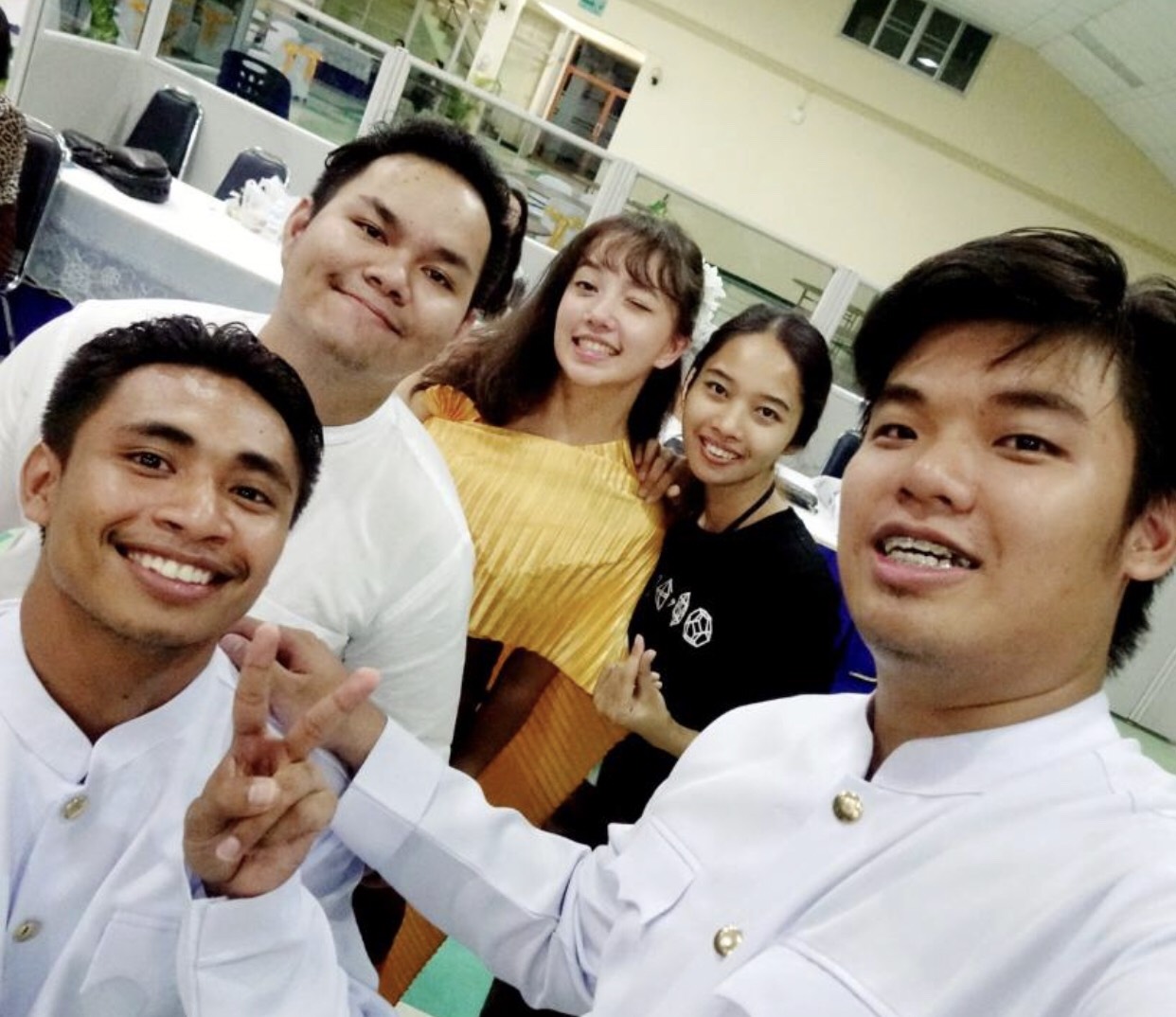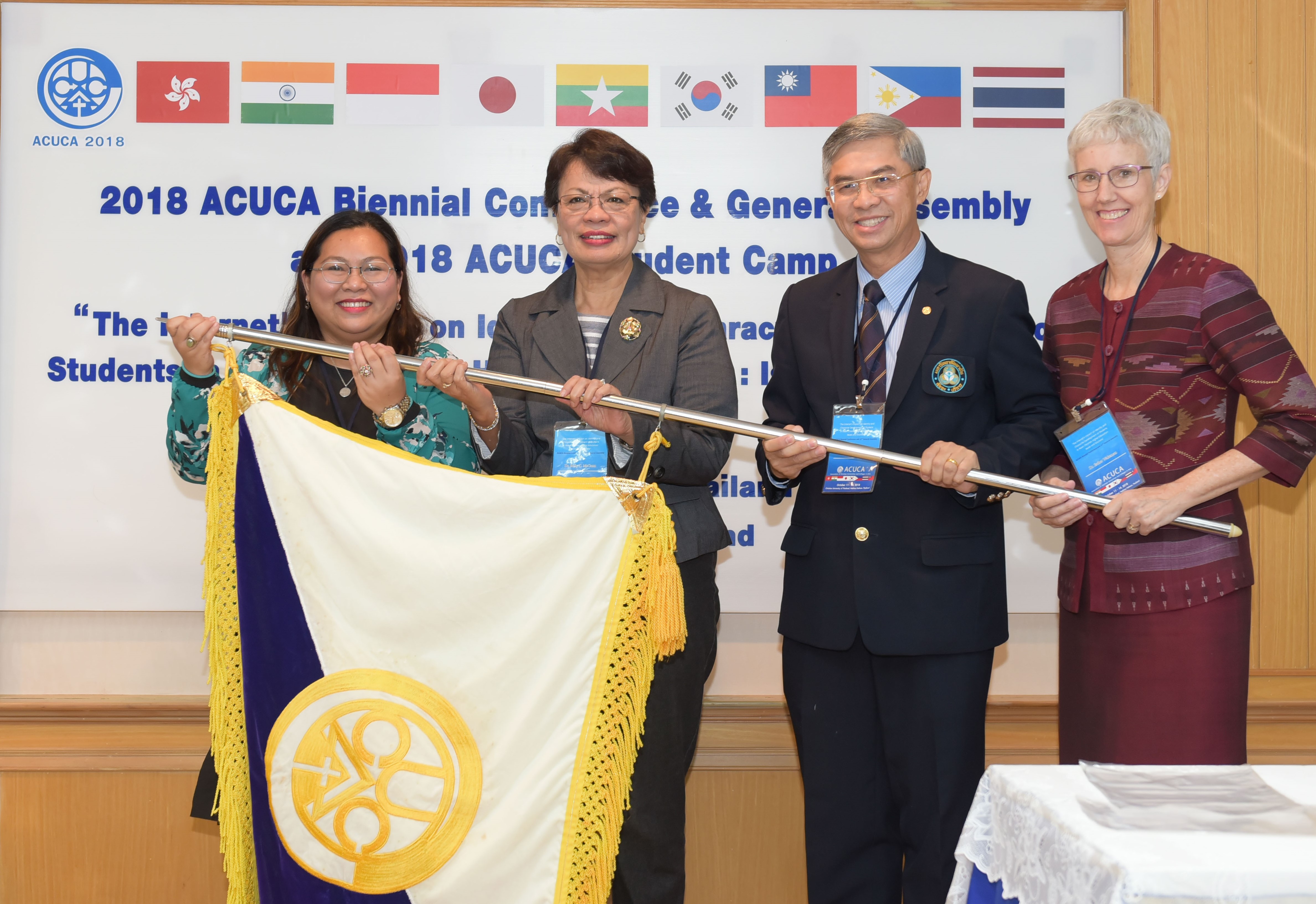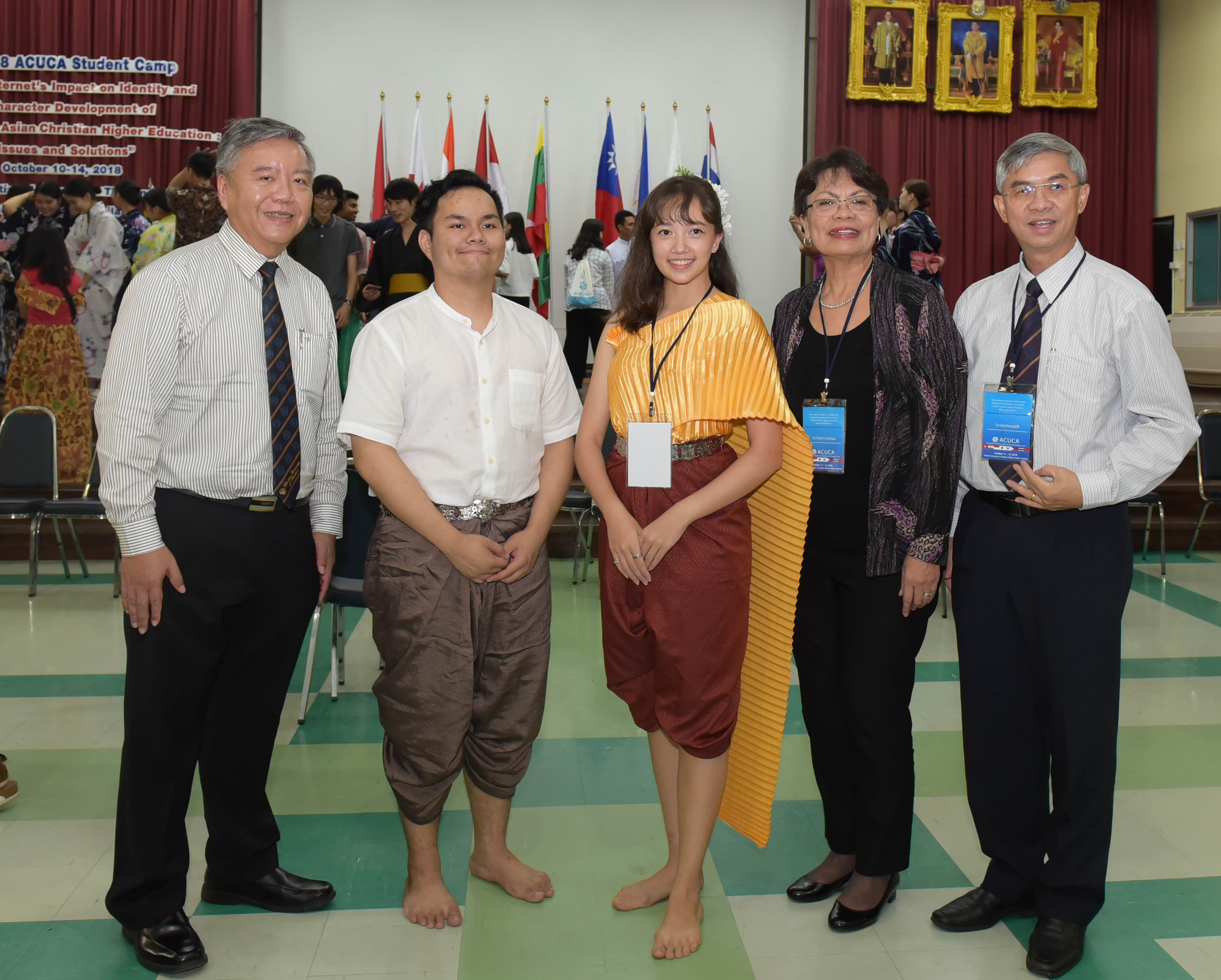A Letter from Esther Wakeman, serving in Thailand
November 2018
Write to Esther Wakeman
Individuals: Give online to E200327 for Esther Wakeman’s sending and support
Congregations: Give to D500900 for Esther Wakeman’s sending and support
Churches are asked to send donations through your congregation’s normal receiving site (this is usually your presbytery
“My parents are close to God, and they taught me how to have a good relationship with God, but since I’ve gone away from home to college, I’m not as close to God as I used to be. Thank you for sharing this way of prayer. It’s new to me — I’ve never listened this way before. I’ve always talked to God and asked for all kinds of help. This way of listening prayer is wonderful. Thank you for sharing it with us.”
These comments by a participant of the 2018 ACUCA (Association of Christian Universities and Colleges in Asia) Student Camp were a highlight for me. Five of the 75 students who attended the camp, and two of the 65 teachers and administrators who attended the Biennial Conference and General Assembly of ACUCA that was held concurrently, attended an optional session to practice Immanuel Journaling, a listening prayer approach rooted in scripture and brain science, and most of them took extra prayer sheets away with them to share with their friends.
I also loved hearing our keynote speaker, Rev. Dr. James Wilder, offer powerful insights from brain science and the Bible that can help us help our students navigate the impact of the internet on our development as people in community. At age 13, our brains begin looking for who “our people” are so we can learn how to be part of our group and prioritize our group’s survival over our individual survival. In an age of the internet when young people are spending an average of nine hours a day on screens interacting through social media and video games, who are their “people,” and what kind of group identity is being formed? Our speaker challenged us that as God’s people, those who have chosen to follow Jesus, our distinctive group identity is that we are the people who love our enemies. He told a story of a pastor in Rwanda whose parishioners from different tribes had killed each other. That pastor is now helping his people grow their capacity to love their enemies through being more intentional in expressing love in affirming words and deep listening, being quiet together, and learning to process strong emotions through empathy. The pastor is also helping his people learn to interact with God in prayer, all in the context of multi-generational community. The world needs Christians to be identified as the people who love their enemies, and who welcome everyone into God’s family.
The students made good use of their opportunity to give suggestions to the adults of ways we can strengthen relationships in the age of the internet. I loved the South Korean students’ suggestion: you can’t control addiction through regulation, but you can encourage your friends to try the 30-day digital detox challenge — taking baby steps away from smartphone addiction every day. Another tool that students from Hong Kong suggested is a phone app called Forest that checks how long you keep your phone off, and for every 24 hours you keep it off, they will plant a tree. That appealed to me, but I admit, I haven’t downloaded the app yet.
Payap University sent two student delegates, neither of whom are Christians, but both of whom are outstanding people. Narut told me that this camp was the best student camp he’s ever attended. I didn’t ask how many he’s attended, but as he is a student leader, I’m guessing it’s a few. Another student from Japan shared with the whole group that he wasn’t a person of faith, but he sensed something special at this camp. Thank you for your prayers for this conference and camp. Please continue to pray that the seeds of God’s love planted in hearts and the wisdom we heard will bear fruit in our lives, and in our schools.
I was also blessed to attend another education conference recently — this one for international schools in East Asia. I have the privilege of chairing the board of Chiang Mai International School and attended the conference in that capacity. My conference highlight was hearing Kim Phuc Phan Thi, the “napalm girl” of the 1972 Pulitzer prize-winning photo (she was running burned and naked down her village road in the photo), share her journey of healing through faith and forgiveness. She is one of the most gentle, peaceful, and powerful witnesses to Jesus I’ve ever heard. Some of the audience were followers of Jesus, but most weren’t. She was honest about the long struggle it was to forgive, love, and pray for her enemies, and about her determination to obey Jesus’ command to do so. Seeing video of her reconciliation with one of the US soldiers involved in the attack was so hope-giving. She is a superb exemplar of God’s enemy-loving people, and of how to winsomely and courageously share our stories of God’s love.
Please continue your prayers for Payap University and Chiang Mai International School as we seek to be communities in which our students experience God’s love and discover that it is possible to become a people empowered to love their enemies. This is the crying need of the world today. May we all grow our capacity.
Thank you for your spiritual and financial support that helps fulfill Christ’s great commission. I’m deeply grateful for your gifts that support this work.
Esther
Please read this important message from José Luis Casal, Director, Presbyterian World Mission
Dear partners in God’s mission,
We near the close of 2018 inspired by the hope of Christ. God is transforming the world, and you are helping to make it happen.
Thank you very much for your support of our mission co-workers. The prayers and financial gifts of people like you enable them to work alongside global partners to address poverty, hopelessness, violence and other pressing problems in the name of Jesus Christ.
Every day, Presbyterian Church (U.S.A.) mission co-workers are blessed to be able to walk alongside their brothers and sisters across the globe. Listening to each other in faith and in friendship, they learn from each other how to work towards a world in which everyone flourishes. Acting upon what they discover together, PC(USA) mission co-workers and our global partners strengthen the body of Christ.
Because you are an integral part of God’s mission, I invite you to become more deeply committed to Presbyterian World Mission. First, would you make a year-end gift for the sending and support of our mission co-workers? The needs in the world are great, and World Mission is poised to answer God’s call to serve others.
I also invite you to ask your session to add our mission co-workers to your congregation’s prayer list and mission budget for 2019 and beyond. Your multi-year commitment will make a great difference in our involvement with our partners. The majority of our mission co-workers’ funding comes from the special gifts of individuals and congregations like yours, for God’s mission is a responsibility of the whole church, not a particular area of the church. Now more than ever, we need your financial support!
In faith, our mission co-workers accept a call to mission service. In faith, World Mission, representing the whole church and you, sends them to work with our global partners. In faith, will you also commit to support this work with your prayers and financial gifts? With hope and faith, I await your positive response!
At God’s service and at your service!
José Luis Casal
Director
P.S. Your gift will help meet critical needs of our global partners. Thank you!
![]() You may freely reuse and distribute this article in its entirety for non-commercial purposes in any medium. Please include author attribution, photography credits, and a link to the original article. This work is licensed under a Creative Commons Attribution-NonCommercial-NoDeratives 4.0 International License.
You may freely reuse and distribute this article in its entirety for non-commercial purposes in any medium. Please include author attribution, photography credits, and a link to the original article. This work is licensed under a Creative Commons Attribution-NonCommercial-NoDeratives 4.0 International License.



